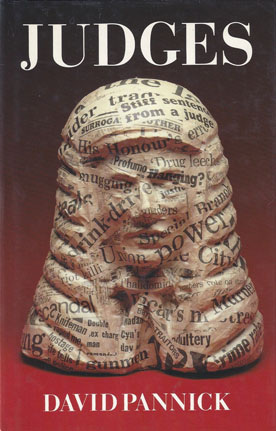
Out Of Print
Judges do not have an easy job. They repeatedly do what the rest of us seek to avoid: make decisions. On that deceptively sympathetic note, David Pannick introduces his critical and irreverent inquiry into what Jeremy Bentham described as 'Judge & Co.'
How are judges appointed, trained, disciplined, criticized, mysticized and publicized? What changes are needed in this important, but hitherto neglected, area of government? As Oliver Wendell Holmes suggested, these questions need to be washed with cynical acid.
The English judge is a unique phenomenon. He rarely gives interviews or appears on television or writes about his job. He does not respond to public criticism. Judges are still expected to obey a standard of conduct that Churchill understood, in the 1950s, to prohibit the Lord Chief Justice from owning a racehorse.
David Pannick warns all those tempted to enter a courtroom of the dangers that lie therein. He compares English practice with the American courts and finds the American system in some respects superior. However, the English judge is usually careful to avoid the excesses of his colleagues on the American bench.
He would not make a reduction in bail conditional on the defendant having 'his hair cut in a fashion similar to that' of the judge; nor respond to the request of a lawyer of Japanese extraction for more time to prepare for trial with the words, 'How much time did you give us at Pearl Harbor?'; nor comment, as a female advocate enters the courtroom, 'What a set of knockers!'
The quality of those who sit in judgment in the United Kingdom has never been higher. They have nothing to fear-and everything to gain-from wider public appreciation of their merits and discussion of where there may be room for improvement. So long as men and women continue to wound, cheat, and damage each other there will be a need for judges to resolve disputes in an orderly manner.